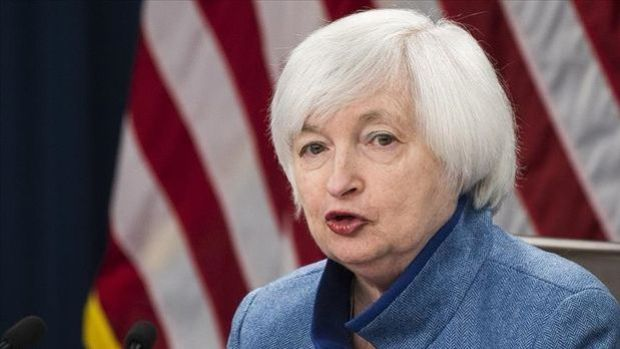US Treasury Secretary Yellen warns about debt ceiling
US Treasury Secretary Janet Yellen has warned that the measures taken for the debt limit could run out by June 1 and that the country could face a cash crunch after that date. Yellen has penned a new letter to US House Speaker Kevin McCarthy regarding the debt limit. Stating that she wrote to McCarthy to inform him of the Treasury Department’s ability to continue financing the federal government’s activities, Yellen reminded him that in her letter dated January 13, she stated that it was unlikely that the cash and extraordinary measures would run out before the beginning of June. Yellen said, “After reviewing the latest federal tax collections, our best estimate is that unless Congress increases or suspends the debt limit, the government will not be able to meet all of its obligations by the beginning of June and potentially as of June 1.” “It is imperative that Congress act as soon as possible” Drawing attention to the fact that this estimate is based on current data, Yellen noted that since federal revenues and spending are inherently variable, the actual date that the Treasury’s extraordinary measures will run out could be a few weeks after these estimates. Yellen emphasized that it is not possible to predict with certainty when the Treasury will be unable to pay the government’s debt, and that she will continue to keep Congress informed as more information becomes available. Janet Yellen said, “Given current estimates, it is imperative that Congress act as soon as possible to increase or suspend the debt limit in a manner that provides greater long-term certainty that the government will continue to make its payments.” Decision to suspend issuance of state and local government bonds In addition, Yellen noted that the Treasury Department has also suspended the issuance of State and Local Government Series (SLGS) Treasury bonds. She stated that these are special purpose treasury bonds issued to states and municipalities and that their issuance is included in the debt limit. This step will be taken to manage the risks associated with the debt limit, but that it could also come at a cost, since state and local governments will be deprived of an important tool for managing their finances. “We have learned from past debt limit impasses that waiting until the last minute to suspend or increase the debt limit can seriously harm businesses and consumer confidence, increase short-term borrowing costs for taxpayers, and negatively impact the U.S. credit rating,” Yellen said. Drawing attention to the fact that if Congress does not raise the debt limit, it will cause serious hardship for American families, undermine the U.S.’s global leadership and raise questions about its ability to defend its national security interests. Yellen called on Congress to protect the U.S.’s reputation by taking action as soon as possible. The debt limit impasse The federal government in the U.S. has reached a debt limit of $31.4 trillion, which could lead to a default. The debt limit, or debt ceiling, refers to “an upper limit on the amount of money the U.S. government can borrow to pay its debts.” Republicans, who hold the majority in the House of Representatives, have been in favor of significant spending cuts in the debt limit negotiations. Democrats insist on raising the debt limit and reject Republicans’ proposals to cut certain spending. There is concern that the debt limit, which has become a deadlock between Democrats and Republicans, could shake markets. As recession expectations rise in the US, the showdown between the two parties over the debt limit is more risky than ever.


